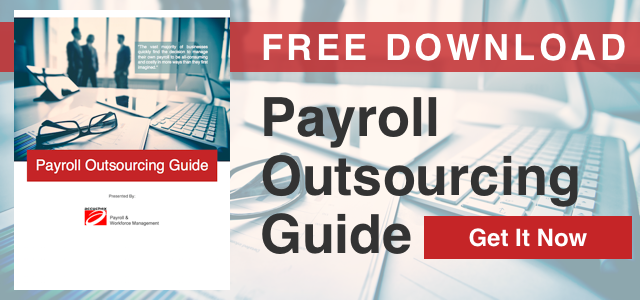 When it comes to navigating California labor laws, overtime pay compliance can be one of the most troublesome.
When it comes to navigating California labor laws, overtime pay compliance can be one of the most troublesome.
And costly.
As of January 1, 2016 California's overtime minimum wage is $15.00 per hour, one and a half times the new California minimum wage of $10.00 per hour. If you earn more than the California minimum wage rate, you are entitled to at least 1.5 times your regular hourly wage for all overtime worked.
California Labor Laws - Overtime Matters
California overtime rules and exceptions are more beneficial to employees than corresponding federal regulations. In 2008, for example, close to 200,000 employees were awarded more than $140 million in overtime and minimum wage back wages from their employers as a result of filing Fair Labor Standards Act (FLSA) violation claims.
For almost all nonexempt private sector California employees who are not covered by collective bargaining agreements, California overtime pay is based primarily on the number of hours worked in a day. However, you must also account for weekly totals when calculating California overtime. Most hourly employees in the California are entitled to a special overtime pay rate for any hours worked over a total of 40 in a single work week, which is defined as any seven consecutive work days by the FLSA.
There are additional laws in California that provide any employee who works for more than 15 hours in a single day to be paid at least one and a half times their normal rate for all hours worked over the overtime limit.
California Labor Laws: Overtime Eligibility
The FLSA automatically qualifies certain types of workers who meet overtime pay requirements for guaranteed overtime for all hours worked over 40 in a single week (or daily overtime limits set by California overtime laws). If your employees are involved primarily in manual labor like construction workers or even retail cashiers, they typically protected under overtime laws.
Employees have no legal basis on which to refuse to work overtime in California, with the exception of limitations under certain specific Wage Orders or a company policy or union contract addressing the subject. However, there are limitations on the actual amount of overtime you may require employees to work.
Overtime Exemptions in California
Overtime laws in California are designed to prevent workers from being exploited by their employers, with hourly wage earners being the primary protected group. However, because of the nature of the work environment and working hours required by certain industries, there are a wide variety of specific exemptions to California overtime eligibility.
Executives, administrators, and other professionals earning at least $455 per week, or $23660 per year do not have to be paid overtime under Section 13(a) (1) of the Fair Labor Standards Act.
External salespeople who often set their own hours are also exempted from California overtime requirements, as are some types of computer-related positions. Independent contractors are also exempt from California labor laws overtime provisions. Other exempt positions include some transportation workers, certain agricultural and farm workers, and some live-in employees such as housekeepers.
In order to determine if your employees are exempt from overtime, the FLSA provides a series of tests to determine the overtime eligibility of an employee based on pay rate, working conditions, skill level, and other factors.
Common Exempt Categories of Employees
If a worker’s job fits into one of these four main exemption categories to overtime law: executive, administrative, professional, and outside sales, they exempted from California and federal overtime regulations.
Executive Overtime Exemptions
A job is classified as an Executive position if the full-time responsibility is management of two or more employees. The employee must spend no more than 20% of their time doing other activities, or 40% in a retail environment, and it should be a salaried position.
Administrative Overtime Exemptions
Administrative positions are classified as such if the primary duty is non-manual work related to business operations, management policies, or administrative training. The position must be salaried to fulfill the requirements, and no more than 20% of the employee’s time can be spent doing activities that do not fit in the categories described above, or 40% in a retail environment.
Professional Overtime Exemptions
To be classified as a Professional position, the primary duties of the job must require advanced knowledge and extensive education. This category can include artists, certified teachers, and skilled computer professionals. The job must be salaried, primarily intellectual, and the employee must be expected to use discretion and judgement. No more than 20% of the worker’s time can be used doing activities that are not directly related to the duties described above in order to be classified as a Professional.
Outside Sales Overtime Exemptions
A job is classified as an Outside Sales position if the main duties are making sales or taking orders outside of the employer's main workplace. The position may be paid either on a salary or commission-based structure, cannot require more than 20% of the employee’s time in work other than sales in order to fall under this classification.
If your employee’s job falls under any of the four categories described above, then they are not covered by federal or California unemployment regulations and you are not required to pay an overtime premium.
Calculating Overtime in California
The trickiest part of payroll administration is the calculation of overtime. You should use a step-by-step approach. First, identify those hours that must be paid on an overtime basis, then decide whether you need to pay time-and-one-half or double-time for those hours, then determine the "regular rate" you must use to calculate the overtime pay. Here's a couple of tips:
Regular Rate of Pay
When calculating overtime pay in California, you must use the employee's "regular rate" of pay, not the normal hourly amount. The regular rate is not simply an employee's normal hourly amount. The regular rate is a term used to mean the employee's actual rate of pay once all hourly earnings plus many other types of compensation are considered. The regular rate must include nearly all forms of pay received by that employee.
Weekly Overtime
Only hours worked at straight-time apply to the weekly 40-hour limit. This prevents "pyramiding" of overtime, where an employee earns overtime on top of overtime already paid.
Payroll Management and Compliance With California Labor Laws
If your organization would like to learn more about its obligations, or acquire resources to deal with these types of situations, Accuchex recently partnered with HR Solutions Partners to offer its customers the most up-to-date and professional human resources management solutions available. To learn more about the different levels of Human Resource Management services available, please follow this link.
To learn more about the services Accuchex provides, click on the button below to download our free guidebook.


